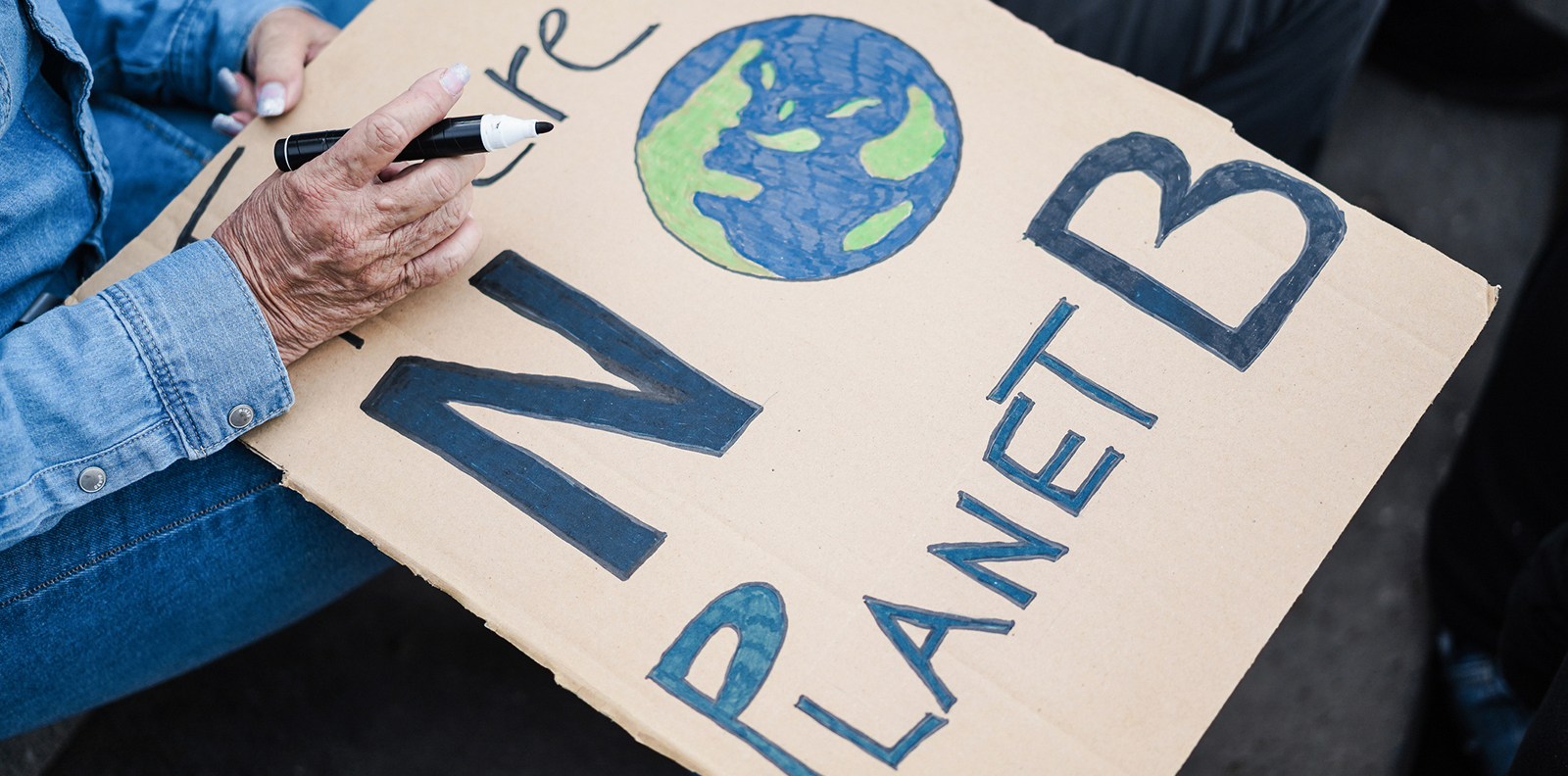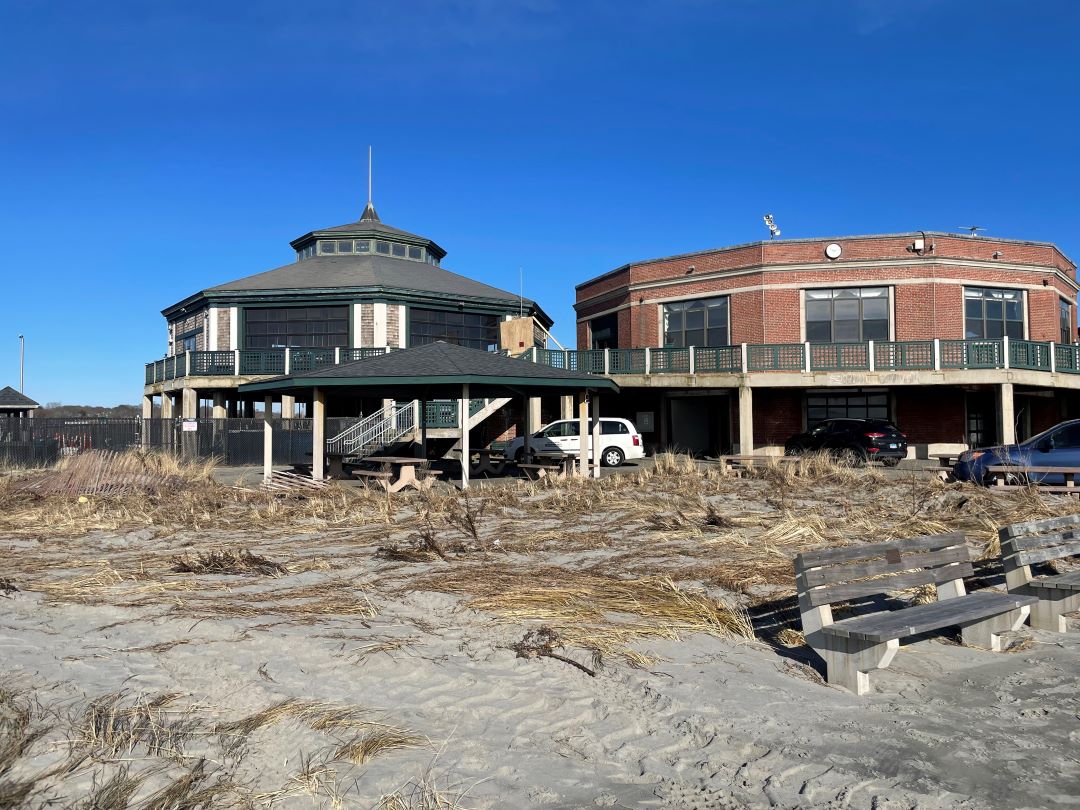Chase Bank Profits at Expense of Warming Planet, Public Health
Local climate activists again call out world’s sixth-largest bank for investing in fossil fuels
September 28, 2019
PROVIDENCE — More than 100 global financial firms recently signed a historic climate pledge, but Chase Bank wasn’t one of them.
“Chase Bank — the worst, the number one investor in fossil fuels — they haven’t seen the light,” climate activist Justin Boyan said. “They are going to profit from oil and gas, drilling, and destroying our water, destroying our land, destroying our air until the last penny is sucked out of the Earth for their profits.”
Boyan, an organizer and activist with Climate Action RI (CARI), made the statement from a megaphone during a Sept. 26 protest outside the Chase Bank branch on Thayer Street. The action was led by activists energized by the Sept. 20 Global Climate Strike that joined smaller, more direct public acts of defiance, many directed at banks.
Of the 130 global financial firms that signed on to the U.N.’s Principles for Responsible Banking, only three of the world’s 10 largest banks joined the coalition that agreed to align their business with international efforts to address the climate crisis.
“They’re the worst bank in the world. Literally, the worst bank in the world is Chase,” CARI organizer and activist Brian Wilder told the lunchtime crowd passing through the popular retail area near Brown University.
Inside the bank, Wilder and other activists cut up Chase credit cards and shamed the big bank for being the top lender to fossil-fuel companies.
JPMorgan Chase & Co. has been singled out for financing coal and oil terminals, tar-sands pipelines such as the Keystone XL, and drilling exploration in the Arctic. Since the Paris Agreement was signed in 2015, the too-big-to-fail bank has lent more than $196 billion to fossil-fuel projects.
Chase CEO Jamie Dimon has been criticized for his $31 million in compensation and low wages for Chase employees. Dimon has knocked progressive politicians such as Sen. Bernie Sanders, I-Vt., and Rep. Alexandra Ocasio-Cortez, D-N.Y., and their proposals like the Green New Deal.
But the trauma caused by the climate crisis and income disparity is very real to Isaiah Lee, 19, a student at Providence College.
“It was a really disheartening feeling when I was growing up that I felt like I was going to die,” Lee said. “It’s kind of shitty that that’s what people are going to go through. But, you know, these rich people aren’t going to feel that at all. And they are not going to feel that because they have the money to buy air conditioning and the proper houses.”
Prior to the protest, CARI sought to meet with bank manager Timothy Oliveira, but never received a response. Chase employees at the protest didn’t speak to the activists during the 9-minute action in the branch lobby. Police arrived as the activists exited the building. There were no arrests.
Chase spokeswoman Carolyn Evert sent the following statement in response to the protest.
“JPMorgan Chase has a long history of advancing environmentally sustainable solutions for clients and its own operations. Many companies today are taking significant steps to invest in lower-carbon fuels, such as renewables and natural gas, and promote efficiency, and we are leveraging our business expertise to help them achieve these goals. The issues surrounding climate change and the environment are complex, and we have sought to actively engage with a diverse set of stakeholders to understand their views. We firmly believe that balancing environmental and social issues with financial considerations is fundamental to sound risk management.”
Lee like several of the activists at the Chase protest attended the local Global Climate Strike march and rally on Sept. 20. More than 1,000 activists called on Gov. Gina Raimondo and National Grid to end corporate campaign donations and take more aggressive steps to address the climate crisis. In response to that protest, Raimondo issued a Twitter thread outlining her environmental accomplishments.
In a statement, National Grid noted its plan to cut emissions 80 percent by 2050 — a plan that has been criticized for not meeting the Paris Agreement target of 100 percent emissions reduction by 2050.
Regarding the Global Climate Strike activists who called on National Grid to end to campaign donations and cease building new fossil-fuel infrastructure and power plants, the utility said:
“It’s inspiring to see so many people who joined the Climate Strike around the world and here in Rhode Island. We know there isn’t time to waste, so we are acting now to ensure a clean energy future. As a leading energy company in the region we have a responsibility to be part of the solution.”
Across the country, Global Climate Week targeted banks for contributing to global warming by doing business with fossil-fuel companies. In Rhode Island, the dozen activists wanted bank customers and the public to be aware of what Chase does with their money.
“Climate change is not a lie. We won’t let our planet die,” they chanted.
The CARI activists urged Chase Bank to follow the lead of other large banks that adopted the Principals for Responsible Banking, which aligns institutions with emission goals of the Paris Agreement, fighting poverty, and reducing environmental degradation.
The activists saw hope in that U.N. agreement.
“There are people all over the country fighting and we are making a difference. There are changes coming,” Wilder said.
“I think we can change things. I think we are not changing things enough, but I think we can change things,” Lee said.



